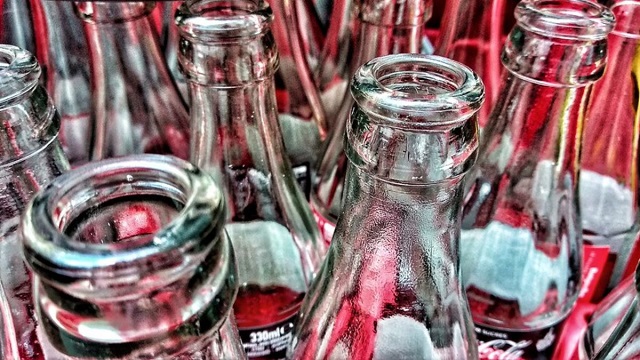Glass Bottles Have a Larger Environmental Impact Than Plastic Bottles
Post time: Sep-21-2023
In recent years, there has been a growing awareness of the environmental impact of various packaging materials, particularly in the context of single-use containers like bottles. While it may seem counterintuitive, research suggests that glass bottles, often touted as an eco-friendly alternative to plastic, can actually have a larger environmental footprint. In this article, we will explore the reasons behind this surprising revelation and shed light on the complexities of sustainable packaging choices.

Energy Consumption
One of the primary reasons why Glass Jars have a larger environmental impact than plastic bottles is the substantial energy required for their production. Glass production involves high-temperature melting processes, which demand a considerable amount of energy. In contrast, plastic bottles are made from petrochemicals, which are energy-intensive to extract and refine, but the production process itself is less energy-intensive.
Weight and Transportation
Glass bottles are significantly heavier than plastic bottles. This difference in weight has a substantial impact on transportation costs and emissions. It takes more fuel to transport glass bottles due to their weight, resulting in higher greenhouse gas emissions. On the other hand, plastic bottles are lighter and require less energy to transport, making them a more environmentally efficient option.
Recycling Rates
While both glass and plastic bottles are recyclable, the recycling rates for these materials vary widely. Glass recycling rates are generally lower compared to plastic, primarily because of the challenges in collecting and processing glass. Many glass bottles end up in landfills or incinerated, contributing to environmental degradation.
Plastic bottles, although they face their own recycling challenges, have a higher recycling rate and can be repurposed into various products. The recycling process for plastic bottles consumes less energy and reduces the demand for virgin plastic production.
Resource Extraction
The extraction of raw materials for glass and plastic production also plays a role in their environmental impact. Glass production relies on sand, soda ash, and limestone, all of which require mining or quarrying activities, causing habitat disruption and land degradation.
Plastic, on the other hand, is derived from petroleum or natural gas. While these resources also have environmental consequences, the impact of resource extraction for plastic production is more concentrated and localized compared to the widespread impact of glass raw material extraction.
Durability and Breakage
Glass bottles are fragile and prone to breakage, which can result in waste during transportation and handling. The need for thicker packaging and protective measures adds to their environmental impact. In contrast, plastic bottles are lightweight and durable, reducing the likelihood of breakage and minimizing waste.
Although glass bottles are often perceived as a greener alternative to plastic bottles due to their recyclability and non-toxic properties, a closer examination reveals a more nuanced reality. Glass bottles, with their higher energy consumption during production, transportation inefficiencies, lower recycling rates, and resource-intensive raw material extraction, can have a larger environmental impact than plastic bottles.
This does not mean that plastic is the ultimate solution, as it has its own set of environmental challenges, particularly related to plastic pollution. Instead, the key takeaway is the importance of considering the entire life cycle of packaging materials when assessing their environmental impact.
Ultimately, the path to sustainability lies in reducing overall consumption, improving recycling systems, and developing innovative packaging materials that minimize environmental harm. Consumers, businesses, and policymakers must work together to make informed choices that prioritize the health of our planet and future generations.
